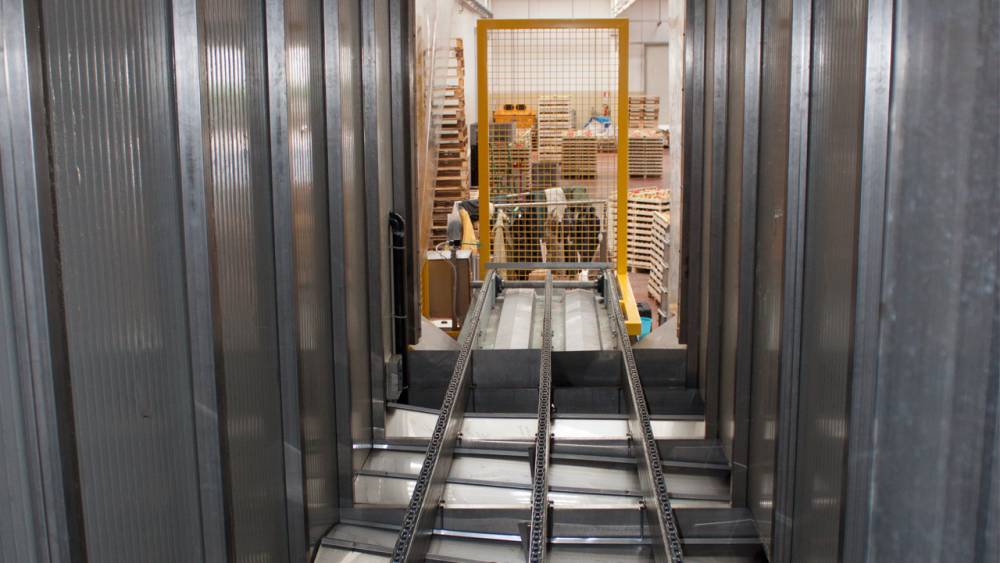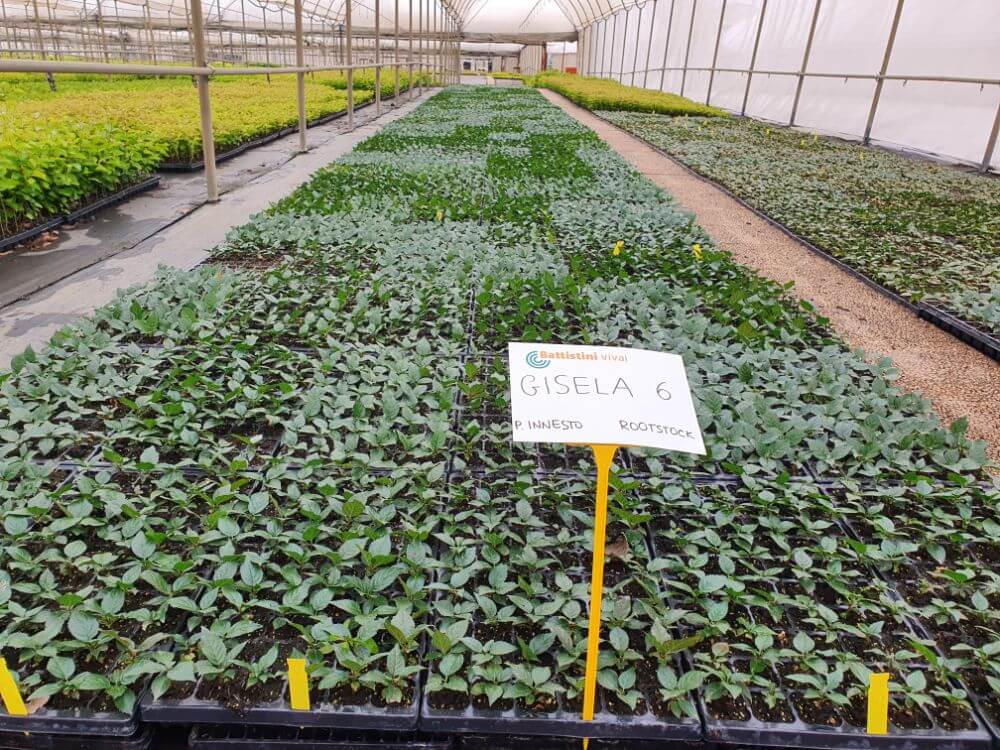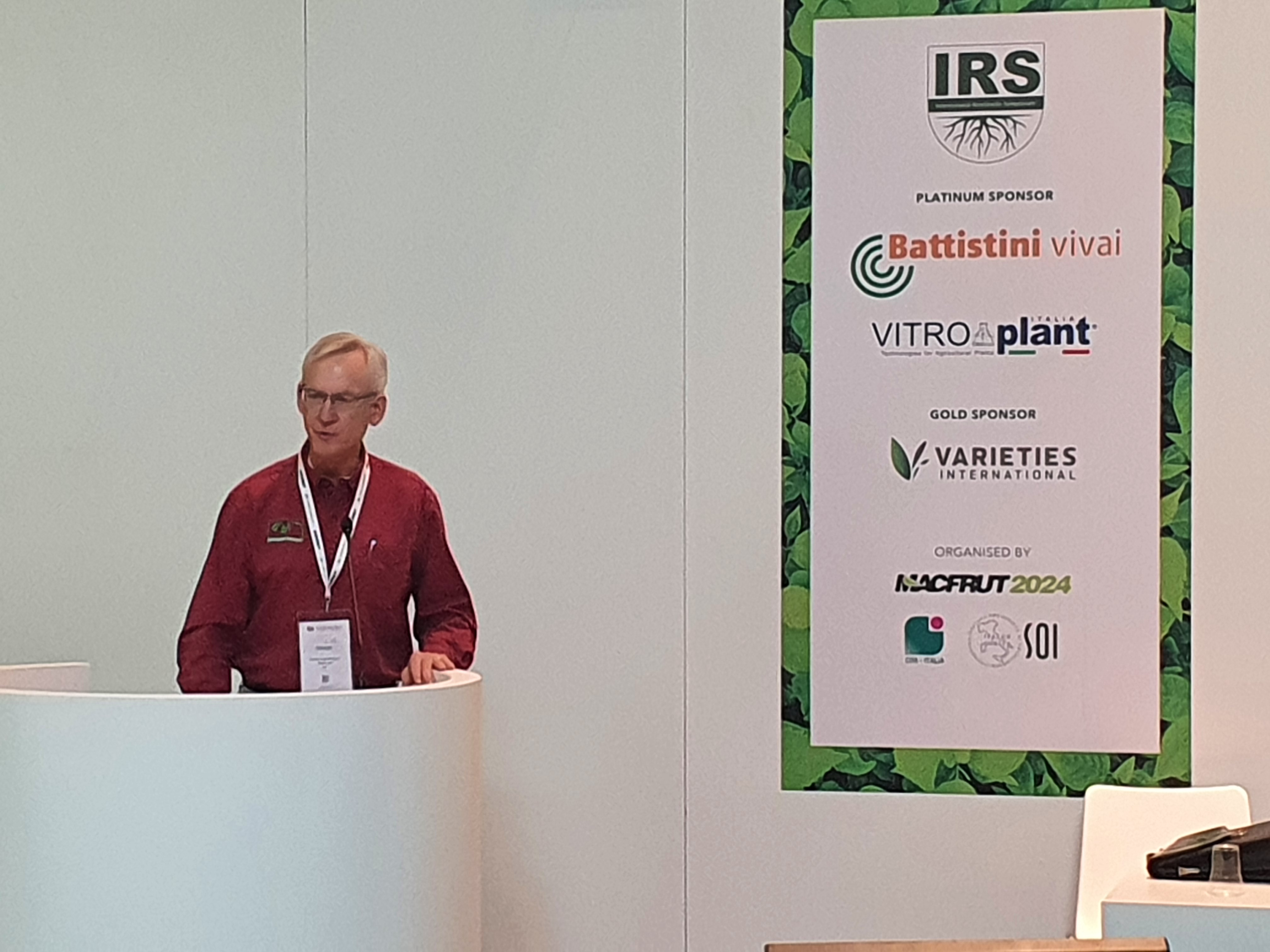Danese Group could soon bring a DHS (Hydrocooling System) directly into the field, which would then work at almost zero distance from the moment the cherries are picked. The Veneto-based group, which has been involved in cold management for more than 35 years, not only in the fruit and vegetable sector, is working on eliminating the time between the cherry's detachment from the plant and the moment when the temperature is lowered, with the 'Danese Hydrocooling System'.
"We have had requests from our customers, so we already have solutions designed, and quotations are being examined," Matteo Danese, owner of Danese Group, told Cherry Times. On the other hand, the company is famous for its customised design, always based on a specific customer's request and never on a price list.
"The DHSs in the field that we have designed are powered by an electricity generator. Given the interest in recent times in agrovoltage systems, everything could be in the future. The Danese Group is always open to innovation".
Cherries and the cold chain, never interrupt it
Cherries are among the most delicate and perishable fruits, they are so-called aclimatic fruits, their degradation process therefore starts immediately after detachment from the plant. Impeccable management of the cold chain is necessary to maintain quality because, under conditions of high temperature and low relative air humidity, cherries begin their decay with browning of the stalks, withering of the fruit, loss of gloss, wrinkling of the pulp, weight loss and development of infectious processes.
The factor that most influences the storage and shelf life of cherries is temperature. It has been proven that delays in the start of the cold chain, from the time of harvest, and its maintenance have an influence on shelf-life. Rapid cooling in fact slows down the respiration of the fruit, its softening and the dehydration of the stalks. Starting the cold chain late also increases the risk of bacterial or fungal infections if there are skin wounds on the fruit (M. Muňoz et al., 2017).
Danish DHS, from 25 to 10 degrees in 15 minutes
The DHS system that Danese Group first brought onto the market in 2017 increases the shelf-life of the product. Thanks to the use of ozone-enriched water, the cherries are not only cooled but also sanitised: 'The cherries are showered with filtered chilled water treated with ozone.
The product arrives from the field at a temperature of 25 to 30 degrees, with the water at 4 to 5 degrees, within 15 minutes it can easily reach 10 degrees. Normal cooling in cold storage can take up to a whole day, and it is known that every hour in cooling is worth a day's shelf-life.
The chilled water is then recovered, cooled again and reused. It is a closed-loop system,' Matteo Danese continued, 'We have customers in the Verona area who have told us that, thanks to the DHS, they can now market their cherries as far as Asia.
The sanitisation system with water mixed with ozone also has its importance in terms of the product's shelf life and maintaining its post-harvest quality: "Unsanitised product, if imperfect, bruised, tends to contaminate other cherries.
We have seen that, thanks to the use of ozone, contamination is stopped. Of course you cannot sanitise a damaged cherry, but you prevent other cherries from being contaminated by bacteria, viruses and mould. In addition, the product is moisturised,' Danese says.

DHS and cold chain respected, saving energy
Not to be underestimated, especially at a time when production costs are rising, is the impact on energy consumption of the use of the Danese Group's Hydrocooling System: "The pre-cooling of the product temperature allows significant energy savings in the storage process.
Our motors are equipped with inverter technology, which allows power to be dosed as required. Our chilled water tanks are insulated, which allows very little dispersion. Some customers switch off the system at night and the following morning the water temperature has risen by just one degree.
Reusing the same water then has the advantage of not having to start each time from water at well temperature. The important thing, and I always suggest this to customers, is not to interrupt the cold chain. Once the temperature of the cherries has been lowered, the processing, the sorting phase, must also take place using ice-cold water so that the product does not heat up again. Cooling it again in the cell would in fact waste energy.
The advantage of prolonging the life of the product, through rapid cooling, is also that of being able to reach more distant customers and thus aim to increase the range of potential destinations for the cherries.
At the moment, Matteo Danese told Cherry Times, the DHS is mainly installed in Italy, but there are also some in Eastern Europe (the countries of the former USSR galaxy and Russia itself are experiencing a real boom in sweet cherry cultivation in recent years) and there is interest in Chile.
"We do not sell directly to those countries. Through dealers and foremen, however, we know that our DHS are also installed in Eastern Europe and as far as South America. In the former USSR countries they plant intensively, so we have been able to design DHS that can process up to 10 tonnes per hour of product.
Barbara Righini
Cherry Times - All rights reserved











